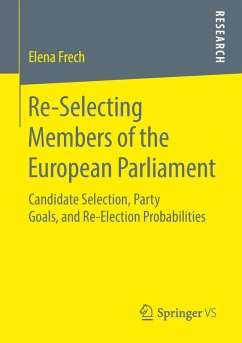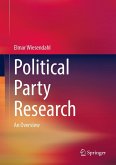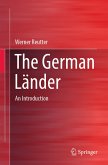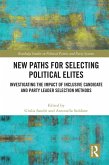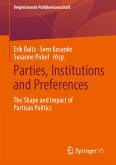Elena Frech addresses the issue of candidate (re-)selection for the European elections. Studying German parties, the author investigates both, the rules and practice of candidate selection. The study is one of the first to shed light on the goals political parties pursue when selecting candidates in the European context. First, the author provides a detailed account of the formal and informal procedures German parties use to construct the electoral lists for the European elections. Then she turns towards the individual candidates, showing which factors determine the list placement of incumbent parliamentarians. The findings highlight the importance of individual candidate characteristics as well as party institutions and are of interest not only to scientists but also to parties, politicians, and citizens.
Contents
- Party Goals and Trade-Offs in European Elections
- Candidate Selection for European Elections in Germany
- The Factors Determining the Re-Election Probabilities of MEPs
Target Groups
- Researchers and students in the field of social, especially political sciences
- Members of political parties, politicians
The Author
Elena Frech obtained a doctorate from the University of Mannheim (Germany). Currently she holds a research position at the University of Geneva (Switzerland), where she studies parliamentary careers. ¿
Dieser Download kann aus rechtlichen Gründen nur mit Rechnungsadresse in A, B, BG, CY, CZ, D, DK, EW, E, FIN, F, GR, HR, H, IRL, I, LT, L, LR, M, NL, PL, P, R, S, SLO, SK ausgeliefert werden.

